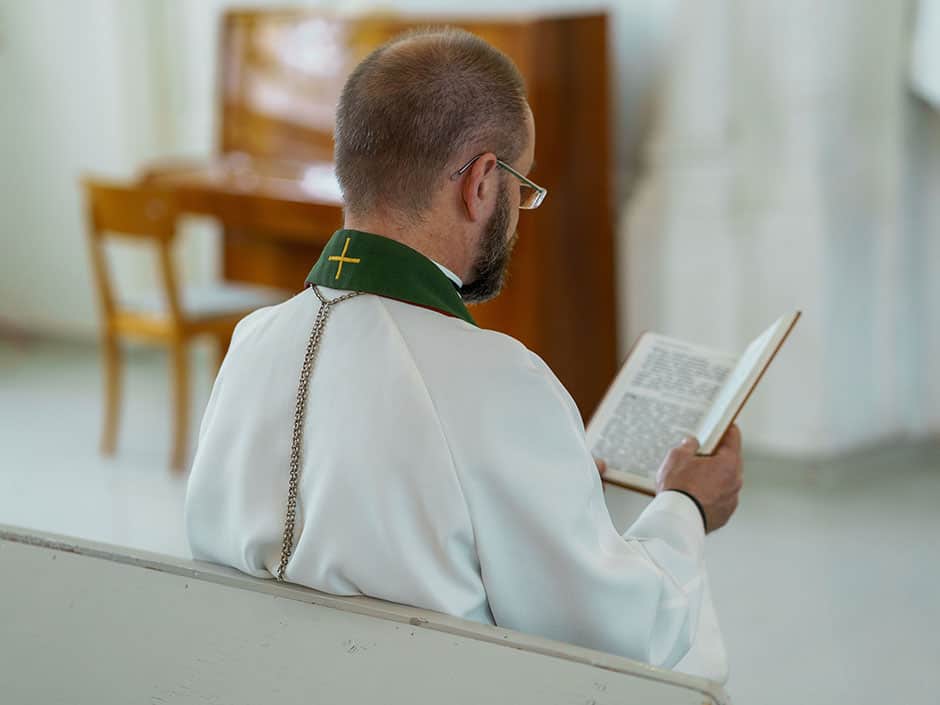How to Hear a Sermon

With summer finally here, a lot of us preachers will be heading out on vacation … or at least we should be! That means you may have an opportunity to sit in someone else’s church and hear them preach during your time away. It’s not always an easy thing to do for those of us who write and present sermons every week. Preachers tend to be a critical lot who have a hard time listening to sermons they’re not preaching. We are prone to evaluate the setting, the exegesis of the text and the preacher’s mannerisms with the critical eye of a homiletics professor when we’re supposed to be simply receiving the word of God being offered to us.
With that in mind, it’s a good idea to review some principles for how to hear a sermon effectively. A few years ago, I came across these instructions by the famous 18th-century evangelist and preacher George Whitefield. They’re designed for congregations but are equally applicable to vacationing preachers. I hope they will be helpful guidelines for you as you step away from the pulpit this summer and get ready to hear some preaching for a change.
1. Come ready to hear. Says Whitefield: “Come to hear [the sermon] not out of curiosity, but from a sincere desire to know and do your duty. To enter his house merely to have our ears entertained, and not our hearts reformed, must certainly be highly displeasing to the Most High God, as well as unprofitable to ourselves.”
Preaching, at its best, is about call and response. We come not to evaluate the sermon or the preacher, or out of a sense of wanting to be religiously entertained for a while, but rather to hear the word of God and obey it. It doesn’t matter if the oration is exciting or flat; God’s word is in here somewhere, and you’ll hear it if you come prepared to receive it. Even the most poorly prepared and discombobulated sermon can be powerful if our hearts are opened by the Spirit to hear it.
2. Listen for the word of God. This leads to Whitefield’s second piece of advice: “Give diligent heed to the things that are spoken from the word of God.” If a king or president were to issue a life-or-death proclamation and your survival depended on whether you listened to it and did what was necessary, you’d put aside everything else to listen to it. So, says Whitefield, “Shall we not pay the same respect to the King of kings and Lord of lords, and lend an attentive ear to his ministers when they are declaring, in his name, how our pardon, peace and happiness may be secured?”
3. Focus on the word more than the preacher. “Do not entertain the least prejudice against the preacher,” says Whitefield, but also “be careful not to depend too much on the preacher or think too highly of him [or her] than you ought to think.” Preachers do not speak on their own, but in Christ’s name, and a lot of people have been converted to Christ under bad preaching. And just because a preacher has a multi-million-dollar building in which to preach and has better hair than you doesn’t mean that we should be envious. In the end, we’re all broken vessels containing the treasure of the gospel.
Every preacher is merely an ambassador, a messenger for Christ. As Whitefield put it, “Other men may preach the gospel better than I, but no man can preach a better gospel.” If you listen for Christ in the sermon, it won’t matter who’s preaching. And if you don’t hear Christ, then it’s not preaching at all no matter how good it sounds.
4. Apply what you are hearing to your life. Good preaching is not just about Christ. It’s about what we will do with what Christ has told us. “Make particular application in your hearts of everything that is delivered,” says Whitefield. It’s so easy to think that the sermon we’re hearing is for someone else instead of for us. When the disciples were confronted with the reality that one of them was going to betray Jesus, their first response was, “Is it I?” That’s a great question to have in your mind as you hear a sermon. Good preaching will not just stir our hearts; it will also move us, under the Spirit’s direction, toward a new trajectory of life.
5. Devote time to prayer before and after the sermon. Last, and perhaps most important, Whitefield says that we should “Pray to the Lord, before, during and after every sermon, to endue the minister with power to speak, and to grant you a will and ability to put into practice what [the Lord] shall show from the Book of God to be your duty.” Prayer is the best preparation for worship and for hearing a sermon. Pray that God will reveal his word and will to you that day. Pray for the preacher who delivers the sermon. We all know that we need the help! And then after worship, pray that God would strengthen and encourage you toward transformation.
May your summer travels give you some good practice at hearing a sermon from the pew!
Share this Post:
Looking for More?
Imagine having fresh help in preparing your sermons right at your fingertips, especially during those weeks when your words and ideas are not flowing easily. Homiletics Online won’t write the sermon for you but once you’ve used this treasury of solid content, you’ll wonder how you ever got along without it.
Would you like to see your post on this blog?
We are always looking for talented and passionate writers who want to share their ideas on preaching the Gospel. If that sounds like you, then please use the button to submit a guest post.

